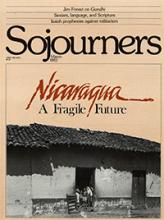Late last year we received an invitation to come to Nicaragua. It was from CEPAD (Evangelical Committee for Aid and Development), whose membership includes most of Nicaragua's evangelical churches, and was more an urgent appeal than an invitation. Gustavo Parajon, a doctor, pastor, and president of CEPAD, asked that a delegation of evangelical leaders from the United States come to Nicaragua as soon as possible. The reason: a covert effort by the United States government to destabilize the new government of Nicaragua and destroy the revolution that had toppled the dictatorship of Anastasio Somoza in 1979.
As our delegation was being assembled, the previously untold story, "America's Secret War," appeared on the front cover of Newsweek. The Newsweek expose reported a $19 million covert operation being carried out by the CIA against Nicaragua. The U.S. government has allied itself with the somocistas, or Somoza supporters, including former members of the National Guard so feared by the Nicaraguan people.
These counterrevolutionaries have set up camps in Honduras and are invading Nicaragua from across the border. The raids are costing many lives, especially among the poor villagers of Nicaragua's northern frontier. The tactics are the same as were used during Somoza's reign of terror: murder, torture, mutilation, rape, and civilian massacres. Villages are attacked, bridges bombed, public facilities destroyed, crops burned. The northern frontier of Nicaragua has become a war zone.
Read the Full Article

